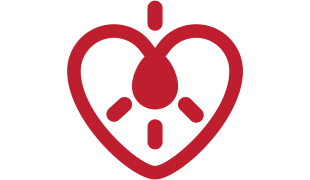- 8501
- 595
- 8
- 12
- 0
- Help Ukraine
About the solution
The problem of my son is a little deeper, and enough to prevent independent living.
In people with dysfunction and lack of deep proprioception cells does not quite know what to do for lack of proprioception.
The use of Hug Machine brings cumulative gains. It can be used at any age. It stimulates the brain that reacts at any age.
The reaction of the brain translates to relax the muscles and new synapses.
Open synapses is equal to develop proprioception. It is the very functional rehabilitation.
I stated that each solid part (or not liquid) has proprioception and that the best incentive for people with DIS is deep tactile.
See a bold hypothesis:
The machine compresses embracing the exterior and internal, including arteries, causing the blood to flow tighter, causing the solid parts (gelatinous) of blood esbarrarem more if more touch. Through touch is increased to proprioceção and increases self-knowledge cell.
Perhaps parts of blood to the touching and knowing more can increase blood proprioceção (if that is possible) causing it to begin producing substances lacking a Diamond Blackfan syndrome as, for example.
Certainly there is much to discover.
Eleven years ago, I built two machines, one for adults and one for children, search by the researchers.
I hope this is a way.
https://youtu.be/OJ6atXDCOck
这些解决方案不应包括使用药物,化学品或生物制品(包括食品);创伤性设备;冒犯性的,商业或内在危险的内容。该解决方案未经医学验证。请谨慎进行!如果您有任何疑问,请咨询健康专家。
-
-
588
-
0
-
7793

Slacks with zippers on both sides for patients who have to stand up in public
CAREGIVING
(SELF)-CARE: DRESSING: Dressing independently.
Amyotrophic Lateral Sclerosis
Strategy/Tip
Body-Worn solutions (Clothing, accessories, shoes, sensors...)
Tremors
Muscle cramps or spasms
Stiffness or rigidity (difficulty moving)
Muscle weakness
Trouble with fine motor skills (e.g., writing, buttoning clothes)
Sleep disturbances
Numbness or tingling in the extremities
Restoring mobility
Managing pain
Promoting self-management
Managing Neurological Disorders
Promoting inclusivity and social integration
Preventing (Vaccination, Protection, Falls, Research/Mapping)
Caregiving Support
General and Family Medicine
Medical Genetics
Medical Oncology
Neurology
Orthopedics
Physical Medicine and Rehabilitation
Rheumatology
United States
-
-
-
307
-
0
-
4026

Mother develops BeMe.ai, an app to track and support autistic individuals, their families and care teams
COMMUNICATION: Communicating, whether by speaking, listening, or other means
CAREGIVING
Autism
App (Including when connected with wearable)
Managing pain
Enhancing health literacy
Promoting self-management
Managing Neurological Disorders
Building Supportive Community Relationships
Promoting inclusivity and social integration
To implement a diagnostic tool
Enhancing Mental Health
Improving Speech and Communication
General and Family Medicine
Internal Medicine
Medical Genetics
Neurology
Pediatrics
Psychiatry
Canada
-
-
-
386
-
0
-
4668

Collaborator Pierluigi Mantovani creates Evolution Devices - solutions that aim to transform Multiple Sclerosis Management
CAREGIVING
BODY BALANCE: Maintaining body balance
STANDING UP: Standing up from a seated position
WALKING: Walking
Multiple Sclerosis
Assistive Daily Life Device (to help ADL)
Walking Aid (wheelchair/walker/crutches)
App (Including when connected with wearable)
AI algorithm
Body-Worn solutions (Clothing, accessories, shoes, sensors...)
Restoring mobility
Regaining sensory function
Managing pain
Promoting self-management
Preserving Organ Function
Managing Neurological Disorders
Maintaining Balance and Mobility
To improve Treatment/Therapy
Preventing (Vaccination, Protection, Falls, Research/Mapping)
Raise awareness
Caregiving Support
General and Family Medicine
Internal Medicine
Medical Genetics
Neurology
Physical Medicine and Rehabilitation
United States
-
 zh
zh